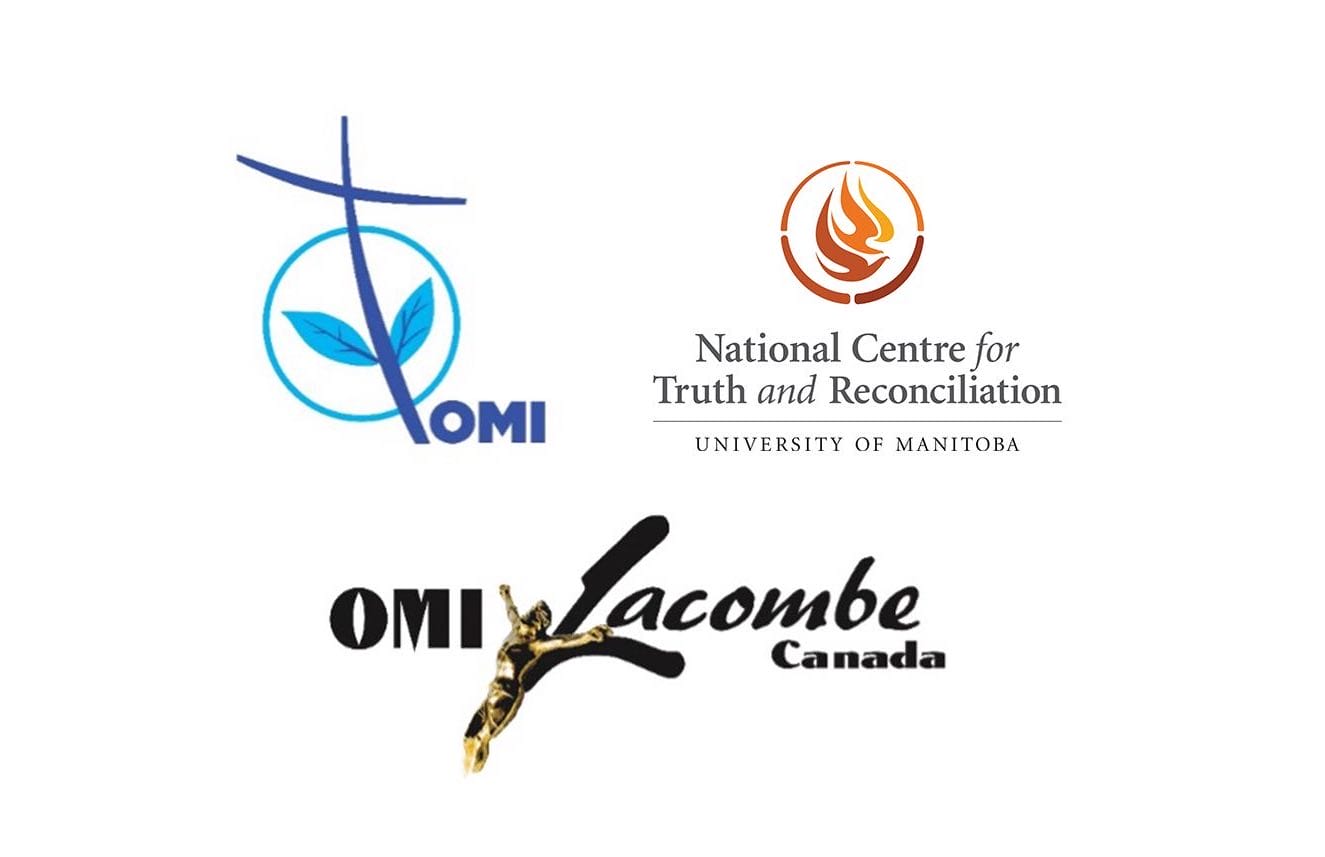Joint statement: NCTR to work with the Oblates to access residential school records

The National Centre for Truth and Reconciliation (NCTR) welcomes the decision by the Missionary Oblates of Mary Immaculate to expedite access to critical residential school records.
The Oblates operated 48 residential schools in Canada, including Marieval Indian Residential School in Cowessess First Nation in Saskatchewan, and the Kamloops Indian Residential School and St. Eugene’s Mission School, both in British Columbia, where unmarked graves have recently been identified.
“There is an arduous road ahead as communities search former sites and work to identify the loved ones who were found in these unmarked graves. Access to all relevant residential school records are an essential component in this process” said NCTR Executive Director, Stephanie Scott.
“Consistent with the spirit and intent of the Settlement Agreement, we are relieved by the efforts being made by the Oblates to make their records available so Indigenous communities can move one step closer to healing.”
Speaking for the Oblates, Fr. Ken Thorson, OMI said, “We recognize our responsibility to Indigenous communities to ensure access to these records. We are committed to working with the NCTR to make it happen, including hiring additional support if necessary to ensure records are provided in a timely fashion.”
The Oblates are taking stock of their archives to see what records are already digitized and what remains to be processed. Records include codices, photographs and staff files.
In response to the TRC mandate the Oblates previously provided more than 40,000 documents to the NCTR. The NCTR will work with the Oblates to provide accessioning details of the Oblate records currently held by the NCTR, so that new records can be identified, digitized and delivered as early as this fall. The NCTR is committed to acquiring a full copy of all Oblate records that depict the details of the role of the Oblate Order in Canada’s residential school history. The NCTR are pleased to learn the Oblate Order declared their commitment to fulfilling our expectations.
“While privacy concerns have been cited around the transfer of these records, the National Research Centre for Truth and Reconciliation Act of Manitoba facilitates the collection of information and records to fulfil the mandate of the NCTR and ensures the appropriate protection of privacy. Provincial and Federal privacy laws are not a barrier for the transfer of records to the NCTR,” said Scott.
Speaking for the Oblates, Fr. Ken Thorson, OMI, Provincial of OMI Lacombe Canada, said, “We appreciate the expert guidance and support possible through this partnership with the NCTR with regards to the accession of our files. It is our hope this will permit a full review of the existing historical documentation from our order’s involvement, so that the truth of residential schools will be fully known.”
“We [at the NCTR] currently hold almost 7000 Survivor statements and five million records. Safeguarding the privacy of Survivors is embedded into every aspect of our work at the Centre. The deaths of these children were never meant to remain hidden, and the burden should not remain on the Indigenous communities to piece together this part of our collective history. All Canadians, governments, and institutions have a role in dignifying and remembering these little ones who perished and never returned home.”
About the NCTR
The National Centre for Truth and Reconciliation (NCTR) was created to preserve the memory of Canada’s Residential School system and legacy. Not just for a few years, but forever. It is the responsibility of the NCTR to steward and share the truths of Survivors’ experiences in a respectful way and to work with Indigenous and non-Indigenous educators, researchers, communities, decision-makers and the general public to support the ongoing work of Truth, Reconciliation, and healing across Canada and beyond.
About the Missionary Oblates of Mary Immaculate:
The Missionary Oblates of Mary Immaculate were founded in 1816 by St. Eugene de Mazenod in Aix en Provence, France. The community arrived in Canada in 1841. After their arrival, Oblate priests and brothers worked across Canada and throughout the far north in a variety of areas including, residential schools, parish and retreat ministry, and hospital and prison chaplaincies. OMI Lacombe Canada Province is based in Ottawa, ON, and Notre-Dame-du-Cap Province is based in Richelieu QC.
Media contacts:
NCTR : media@emdashagency.ca
OMI Lacombe Canada Province : information@omilacombe.ca
Notre-Dame-du-Cap Province : provincial@omiquebec.com

Stephanie Scott, Executive Director
National Centre for Truth and Reconciliation

Fr. Ken Thorson, OMI
Provincial – OMI Lacombe Canada

Père Luc Tardif, OMI
Provincial – Notre-Dame-du-Cap
